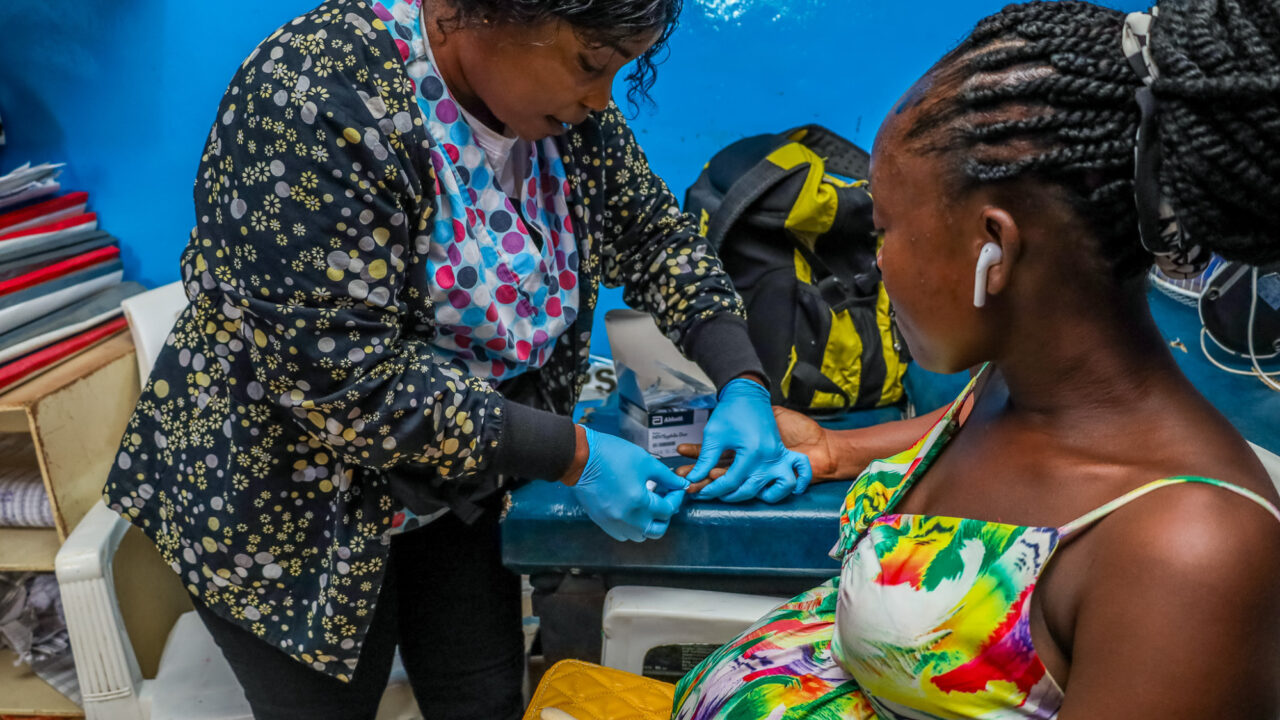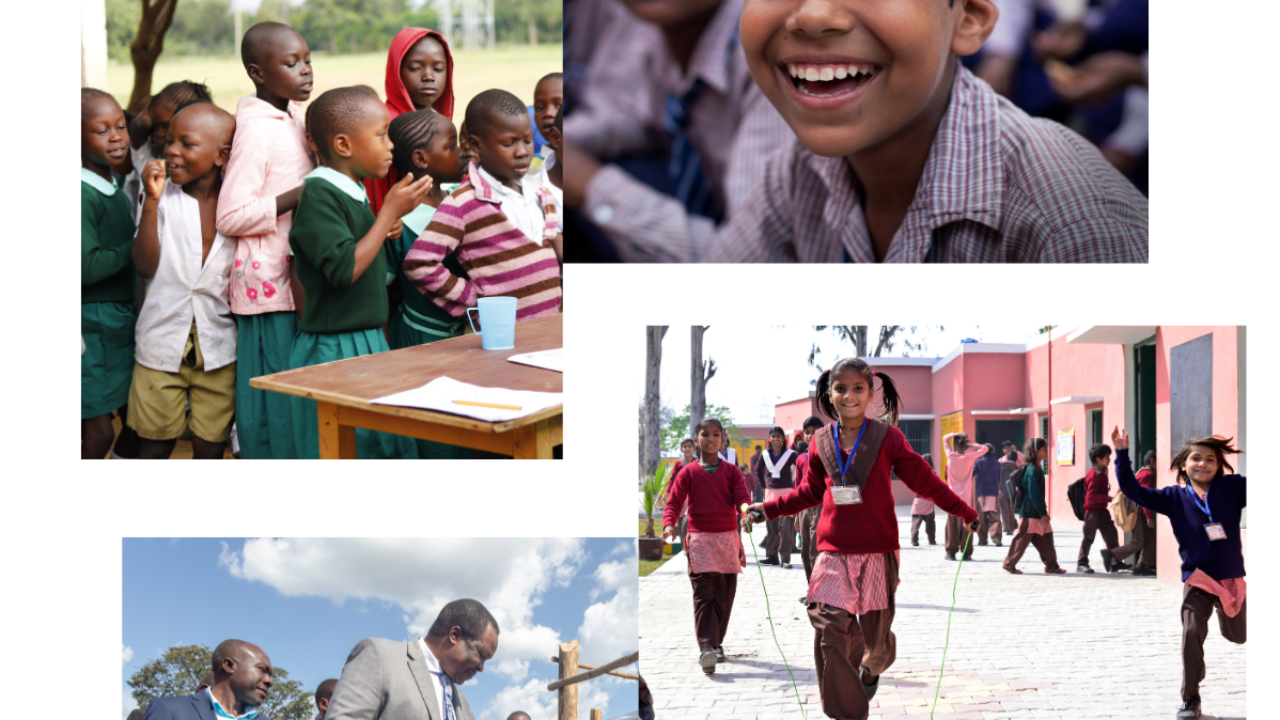In November of last year we introduced our Maternal Syphilis program, an intervention that was identified for scaling by our Accelerator, Evidence Action’s engine for new program development. Launching in Liberia, the program aims to prevent thousands of needless deaths and disabilities in newborn children by detecting and treating syphilis among pregnant women.
We have since made significant steps towards program launch, signing a five year Memorandum of Understanding with the Ministry of Health of Liberia and hiring Emilie Efronson, an experienced public health practitioner, as country manager. Based in Monrovia, Emilie and her soon-to-be hired team will work with the government to nationally scale up dual HIV/syphilis rapid testing —leveraging the country’s existing HIV infrastructure—to detect and treat the disease before it causes complications to the child. Today’s testing rate for maternal syphilis in Liberia stands at 6%; we aim to help increase it to 80% within five years.
We talked with Emilie about her new role and what she expects to achieve:
What excites you the most about your new role?
I am really excited to establish key relationships, identify a strong team, work closely with the Ministry of Health and government partners, and continue some of the scoping work that was initially done. I think any time a new country or office is being launched, there is a lot of natural excitement to get things started and off the ground. [Maternal syphilis testing and treatment] is such an under-resourced area. I think what’s extremely exciting is that we can leverage the funding and momentum around HIV to tackle this very serious issue of screening for and treating syphilis. So I think there is a lot of uniqueness in this program, and due to the nature of how easy treatment is for syphilis, it creates a great opportunity to actually make a significant impact.
If done correctly, what will be the lasting impacts of this program?
Currently in Liberia there is virtually no screening for syphilis taking place. However, nearly all pregnant women attend at least one prenatal care visit (97.8%) of which 77% are screened for HIV on an HIV-only test but only 6.6% are screened for syphilis. By swapping out this test with an HIV/syphilis dual test, we would be able to assume the same rate of screening for syphilis. For women who do test positive for syphilis, a single dose of penicillin can prevent congenital syphilis and 80% of adverse outcomes if administered correctly 30 days prior to delivery. Successfully implementing this dual testing program in Liberia has the potential to prevent thousands of deaths and disabilities among newborn children.
What past experiences have prepared you for this role?
My first job in the public health realm was in South Africa, in the Western Cape, working with the Ministry of Health there to evaluate their community-based healthcare program with lay healthcare workers.
After I worked in South Africa, I moved to Zambia for four years, initially working with the Center for Infectious Disease Research (CIDRZ) on a Bill and Melinda Gates Foundation project, where we worked closely with the Ministry of Health to test the feasibility of implementing differentiated service delivery (DSD) models for HIV+ patients at scale within the country. Following the success of the program we worked alongside the Ministry of Health to revise the National HIV Testing and Treatment Guidelines to include DSD models in national programming.
During the later year and a half of my time working in Zambia, I worked for an organization called AidData, where I worked to revamp and launch the National AIDS Council Management Information System that is responsible for all of the preventative HIV information in the country. The goal was to improve the information that is collected, but also to integrate data from different systems so that we could compare prevention data with treatment data to create a holistic picture of what was happening, and create targeted responses in key areas of need, especially for adolescent girls and young women who are most at risk for HIV. Additionally, the system sought to better identify where partners in the country were operating and what their specific activities were in order to avoid duplicate efforts.
I did something very similar in Côte d’Ivoire prior to this role, where we created a one-stop-shop for all the HIV/AIDS information in the country geolocated and visualized on a dynamic map. So instead of just looking at prevention and treatment information, it was looking at prevention, treatment, lab commodities, as well as individual stakeholder data in a centralized place. The system provides decision-makers with information essential for effectively allocating resources and implementing targeted programmatic responses for HIV/AIDS in the country.
Having in-depth experience working with data in the HIV clinic setting, as well as with long-term government partnerships, informs my understanding of how—for this specific program—we can leverage the resources, the partners, and the coordination to not only continue to improve HIV screening and treatment, but also something equally important, which is increasing syphilis screening and treatment for pregnant women and their sexual partners.
What excites you the most about Evidence Action’s approach?
I really appreciate that our program is driven by evidence, that it is cost-effective, that it is something that the government here will eventually be able to take over, and that it will be iterated as needed. The latter is particularly important because sometimes we think that things are going to happen in a certain way and they do not, so I think that being able to identify challenges and pivot in real time is really critical.



